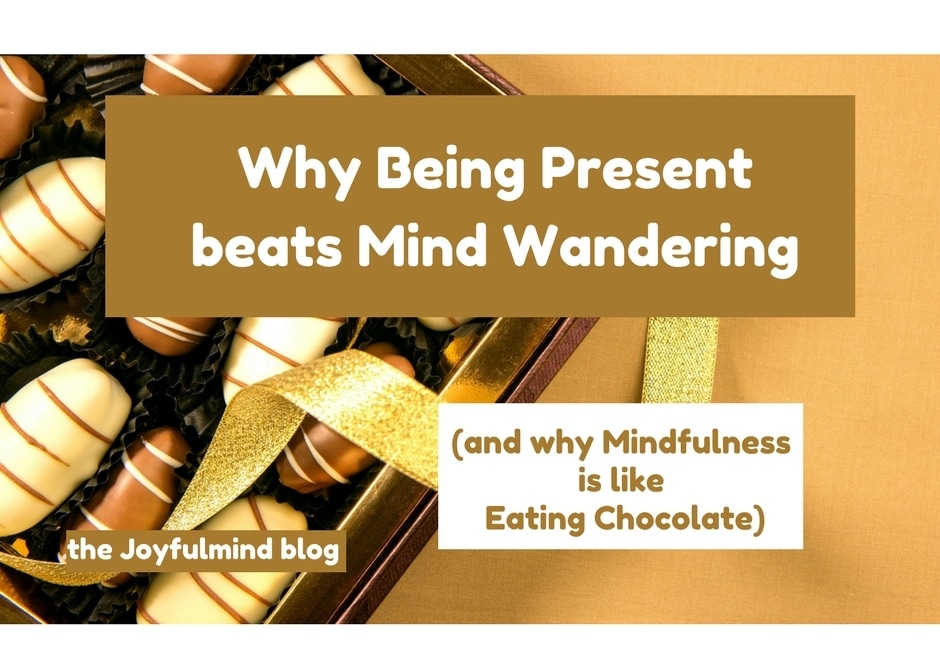JOYFUL MIND WELLBEING
|
When we train ourselves to get out of our heads and be more present in “real time” we feel more alive, enjoy more satisfaction, contentment, richness of life and connect to others more easily and authentically. IS A WANDERING MIND AN UNHAPPY MIND? The rewards of being more mindful, or present with one’s experience, are backed by research. In a 2010 study, Harvard University Social researchers Gilbert and Killingsworth investigated the phenomena of ‘mind wandering’. That is, the impact on well being of being mentally miles away while doing a task. "Track your Happiness" The researchers used an iPhone app called "Track your Happiness" to ping 2,250 people at random moments throughout the day. Participants were asked: (1) how happy they were (2) what they were doing and (3) whether their mind was wandering or in the moment. Hey, you can try the app for yourself. It' available to the general public. MENTALLY CHECKED-OUT Based on the wandering activity of my own errant mind, the percentage of mind wandering uncovered in the study is probably not surprising. Participants reported being mentally checked-out nearly half of the time (46.9 percent). What does it matter? Crucially, being mentally checked-out was found to detract from people’s happiness levels. TEN PER CENT Ten per cent of task satisfaction (and that inner glow of happiness) did not come from the task itself but from whether people mind wandered or not. In other words, happiness is enhanced by being present with the activities we’re engaged in. Moreover, the researchers also suggested that less mind wandering is a better predictor of happiness than wealth. AUTOPILOT That’s not to say a similar activity, day-dreaming, doesn’t have its relaxing upside. But let’s distinguish day-dreaming (happy, relaxed mental time-out) from aimless mind wandering. Due to the negativity bias of the brain, rumination can tip us into troublesome territory. Autopilot often drives us into past regrets or insecure scenarios about the future. It can fuel excessive resentment and unnecessary worry. Unwanted consequences arise when we take a back seat and let thoughts and emotions drive our actions and behaviour. INSTANT GRATIFICATION MINDFULNESS Mindfulness reminds me of eating chocolate. On good days, being in the present moment, with senses fully engaged, is delicious. I find it instantly rewarding and reliably good- like chocolate. Mindfulness goes one step further. Unlike chocolate, it doesn’t carry a downside: the calories, the sugar or the guilt. Instead, every time I disconnect from my murky mind and return to the present moment, it feels good. By training ourselves to get out of our heads and be more present in “real time” we feel more alive, enjoy more satisfaction, contentment, richness of life and connect to others more easily and authentically. It’s enjoyable. A lot like … eating chocolate! For more detailed info on the study, see the excellent article in Scientific American by Jason Castro, November 2010. Copyright Shakti Burke 2017 Like it? Share it! copy the blog url onto your Facebook feed.
Mobile users: click the link to the blog on your phone, for an easier read.
0 Comments
Leave a Reply. |
Categories
All
Categories
All
|
ServicesYoga Online
Mindfulness Coaching |
|

 RSS Feed
RSS Feed